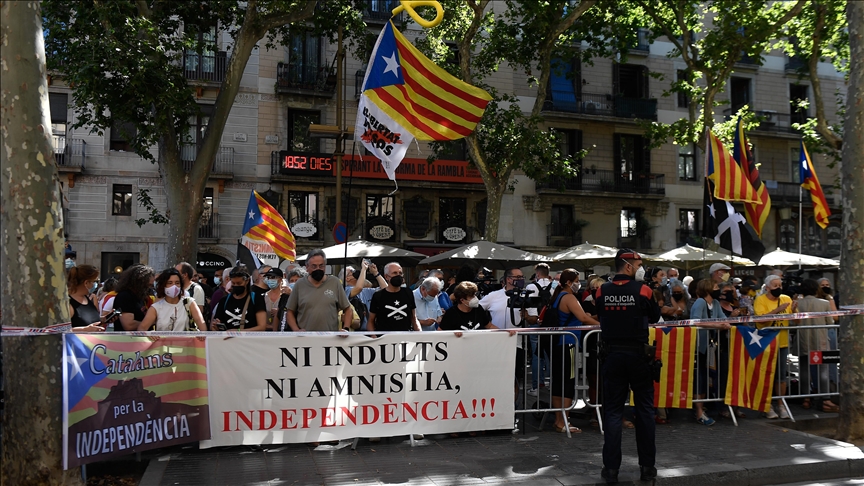OVIEDO, Spain
Spain’s parliament passed the amnesty law for Catalan separatists on Thursday, overcoming the controversial bill’s final political hurdle.
Except for violent terrorism, the law will pardon anyone charged or facing charges for crimes related to the Catalan separatist movement from November 2011 through November 2023.
That includes activists and politicians such as former Catalan President Carles Puigdemont, who fled Spain after the botched attempt to break away from Spain in 2017.
Although Puigdemont has remained heavily involved in Catalan and Spanish politics, even running to lead Catalonia in May’s regional elections, he has remained in self-imposed exile for nearly seven years.
This law will clear the way for Puigdemont, and other exiled politicians, to return without facing legal consequences.
The measure will take effect as soon as it is published in Spain’s official state gazette, which government sources told Spanish news agency EFE will be within a maximum of 15 days.
From there, the courts will determine exactly how the law will be applied and how many people it will benefit.
At the same time, opposition parties have vowed to challenge the bill in Spain’s Constitutional Court and at the European level.
Spain’s parliament already passed the amnesty bill in March. However, it was sent to the conservative-controlled Senate, which used political maneuvers to delay the bill’s final approval by sending it back to parliament.
During the debate before the law’s final approval, opposition leader Alberto Nunez Feijoo of the Popular Party called the bill “political corruption” only done to keep Prime Minister Pedro Sanchez in power.
As the amnesty law was being negotiated, a wave of sometimes violent anti-amnesty protests rocked Spain.
On Thursday, the bill was celebrated by Catalan separatists, who vowed that this is not the end of their movement.
“Next stop: referendum,” said Gabriel Rufian of the separatist group ERC, describing Thursday as a “victory.”
Meanwhile, Spain’s progressive government has defended the measure as a way to lower tension with Catalonia and deflate its citizens’ desire to split from Spain.
The recent election in Catalonia suggests the plan may be working, at least for now.
After the vote in early May, the Catalan separatist parties saw their combined majority slip away for the first time in years.
The Socialist Party emerged victorious, though without a majority. Negotiations are still underway to form a regional government.
In January, a poll by the Catalan political science institute ICPS found that 39.5% of Catalonians support splitting from Spain, while 52.5% would like to remain in the country.

